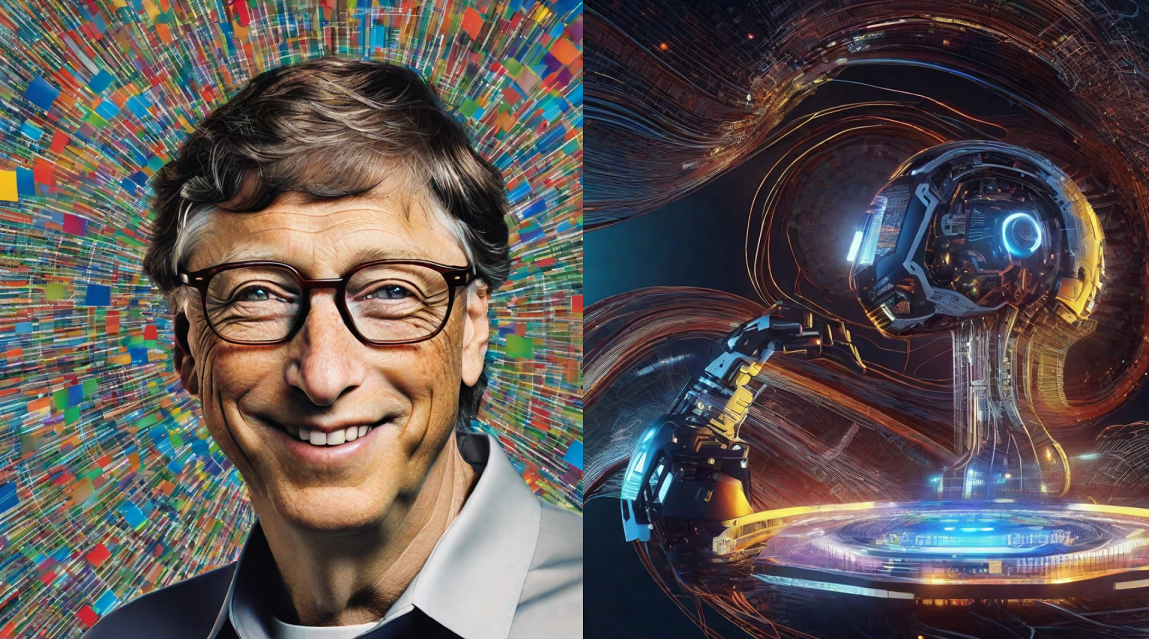
In a recent interview with German newspaper Handelsblatt, billionaire philanthropist Bill Gates shared his views on the current state of Generative AI, his skepticism about its future growth, and predictions surrounding the highly anticipated GPT-5. Gates, known for his insights into technology and global issues, delved into topics ranging from AI advancements to its potential impact on healthcare and climate change.
Generative AI has been at the forefront of technological advancements, with significant investments pouring into the field. The launch of OpenAI's ChatGPT in November 2022 marked a milestone in AI development, but Gates believes that the technology may have hit a plateau. He expressed his reservations about the continuous improvement of Generative AI, particularly in the context of GPT-5, stating that he doesn't foresee it surpassing its predecessor, GPT-4.
Contrary to the optimism at OpenAI, Gates sees reasons to believe that GPT technology has reached a ceiling. Acknowledging the incredible leap from GPT-2 to GPT-4, he suggested that the current state of generative AI might not be as promising as some think. While he admitted the possibility of being wrong, Gates emphasized that the advancements from GPT-4 to GPT-5 might not be as groundbreaking.
In the interview, Gates forecasted a two-to-five-year timeline for a substantial increase in the accuracy of AI software along with a reduction in costs. This, he believes, will pave the way for the development of new and reliable applications. Despite his reservations about the continuous improvement of Generative AI, Gates recognizes the short-term potential in AI advancements, emphasizing the benefits for developing nations, particularly in areas like health advice via smartphones.
Addressing concerns about the cost and reliability of AI, Gates pointed out that some AI chips from Nvidia can cost up to $30,000 per piece. While acknowledging the high costs of training large language models, he highlighted the decreasing usage costs, stating that the actual expense per query has reduced from ten cents to around three cents.
Gates sees significant potential for AI in healthcare, expressing optimism about its role in expediting the development of drugs and vaccines. Despite challenges related to reliability, he envisions AI becoming integral to healthcare advancements.
The interview also touched on the concept of AI as a black box, with Gates emphasizing the importance of understanding how AI encrypts information. While acknowledging ongoing efforts to decipher the complexities of AI, Gates sees this understanding as a crucial milestone.
Turning to the broader impact of AI, Gates discussed its potential role in mitigating climate change. He highlighted the improving accuracy of climate models and mentioned his investments in nearly 100 companies working on AI solutions to enhance the power grid.
In conclusion, Bill Gates' insights into the future of Generative AI and his reservations about the potential of GPT-5 offer a thought-provoking perspective. As the world awaits the next breakthrough in AI technology, Gates remains a prominent voice in shaping discussions on the intersection of technology, society, and global challenges.